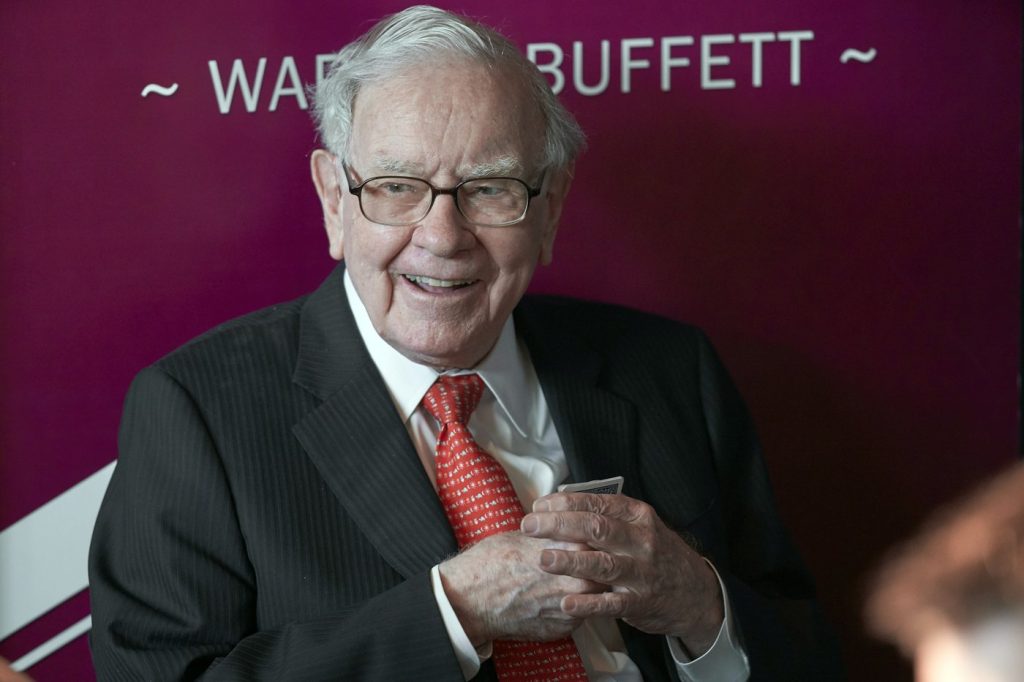OMAHA, Neb. (AP) — Billionaire investor Warren Buffett announced on Saturday that he plans to step down as the chief executive of Berkshire Hathaway by the end of the year. This news came as a surprise to many, especially since the 94-year-old investor had previously stated he did not intend to retire at this stage of his life.
Buffett, known as one of the world's richest individuals and one of the most successful investors in history, took control of Berkshire Hathaway in 1965. Originally a textile manufacturing company, Buffett transformed Berkshire into a thriving conglomerate by acquiring undervalued businesses and stocks. His investment strategies turned him into a Wall Street legend, earning him the moniker "Oracle of Omaha," named after the Nebraska city where he was born and has continued to live and work.
Buffett's investment career has been marked by both remarkable successes and notable failures. Among his best investments are:
Buffett's Best Investments
— National Indemnity and National Fire & Marine: Acquired in 1967, these companies represented some of Buffett's earliest insurance ventures. The insurance float generated from premiums helped fund many of Berkshire's subsequent investments. By the end of the first quarter of this year, the insurance division had grown to encompass $173 billion in float.
— Share investments in American Express, Coca-Cola Co., and Bank of America were made during difficult periods for the companies. Collectively, these investments have appreciated by over $100 billion, not including the substantial dividends he received throughout the years.
— Apple: Despite his initial reservations about technology companies, Buffett began investing in Apple in 2016. He justified his $31 billion investment by recognizing Apple as a consumer products company with a loyal customer base. This investment later surged in value to over $174 billion before he began to divest some shares.
— BYD: Taking the advice of his late partner Charlie Munger, Buffett invested $232 million in BYD, a Chinese electric vehicle manufacturer, in 2008. This investment ballooned to over $9 billion before partial sales, with Berkshire's remaining stake valued around $1.8 billion today.
— See's Candy: Buffett considers his 1972 acquisition of See's Candy as a pivotal moment in his career. Despite originally focusing purely on low-priced investments, he learned the importance of buying stable businesses at fair prices. Known for its long-lasting competitive advantages, See's provided substantial profits, amounting to $1.65 billion pretax through 2011.
— Berkshire Hathaway Energy: The acquisition of MidAmerican Energy for $2.1 billion in 2000 has proven to be another wise investment. Despite facing current liabilities due to wildfires, this utility segment significantly contributed over $3.7 billion to Berkshire's profits in 2024.
Buffett's Worst Investments
— Berkshire Hathaway itself was named by Buffett as possibly his most regrettable investment. The textile company struggled financially for years until Buffett ultimately shut it down in 1985. Nonetheless, the shares he initially bought for $7 and $8 during the 1960s have appreciated to an astounding value of $809,350 each today.
— Dexter Shoe Co. was purchased for $433 million in 1993, a decision Buffett later regretted as he used Berkshire stock for the transaction, effectively trading 1.6% of the company for a failing business.
— Missed opportunities have also plagued Buffett, who admits that not investing in tech giants like Amazon, Google, or Microsoft early on cost him billions. Additionally, he recognized his failure to capitalize on a plan to acquire 100 million Walmart shares, which would be worth nearly $10 billion today.
— Selling shares of banks prematurely, particularly before the pandemic, has been another mistake for Buffett. He divested his considerable holdings in bank stocks such as Wells Fargo and JP Morgan at lower prices, missing out on significant gains as those stocks have since doubled in value.
— Blue Chip Stamps, which Buffett and Munger acquired in 1970, became less relevant as trading stamps fell out of favor. However, they managed to use the generated float from this investment to acquire more profitable companies like See's Candy and Wesco Financial.
Buffett's insights into investing, along with his decision to step down as the leader of Berkshire Hathaway, mark a significant chapter in the history of one of the most influential investors of our time.












